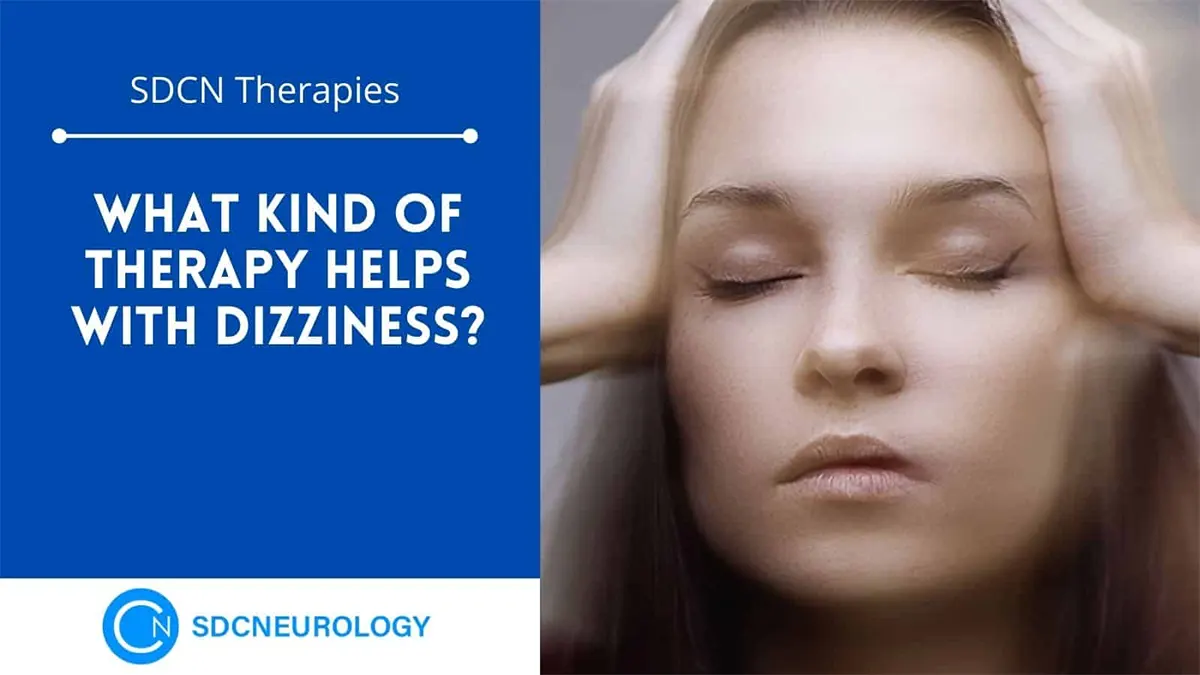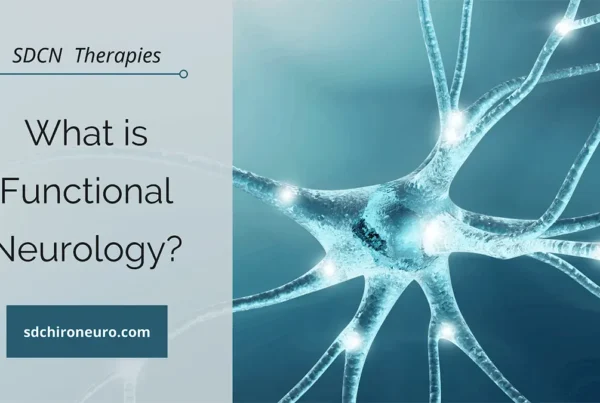
Dizziness – that feeling that happens when you stand up too fast and the room starts spinning around you. You grasp for the nearest chair, wall, or other sturdy fixture to steady yourself until the spinning stops. Sometimes the feeling is very brief, lasting only seconds, but sometimes it can last for much longer. Additionally, you may only experience dizziness rarely, or perhaps you experience it frequently. Fortunately, there are several ways to help combat dizziness.
What Causes Dizziness?
The most common form of vertigo, or dizziness, is Benign paroxysmal positional vertigo (BPPV). It is caused by calcium carbonate crystals that become displaced in the inner ear and tickle the cilia inside your ear. These send mixed signals to your brain and misinform it regarding balance. Other common causes are dehydration and medications. Although BPPV is the most common cause of vertigo, other vestibular disorders like Meniere’s disease and vestibular migraines can also be the cause.
Dizziness Treatment
First things first, lie down. Sometimes dizziness is caused by loss of blood flow from your brain and usually happens when you sit or stand up too quickly. Lying down allows the blood to flow back toward your brain.
If you believe your dizziness is brought on by dehydration, begin with Pedialyte (yes, even adults)! Dizziness is often caused by dehydration!
Check your medications – one of them could cause dizziness. If dizziness is a possible side effect of one of your medications, let your doctor know right away so that they can address it.
Three therapies are commonly used to treat dizziness – Epley maneuver, balance therapy, and psychotherapy. Epley maneuver is used for benign paroxysmal positional vertigo that helps move the calcium crystals in your inner ear that send mixed signals to the brain. Balance therapy helps to retrain your brain to be less sensitive when you’re moving around. Psychotherapy aims to help reduce anxiety-induced dizziness.
Depending on what you have going on you may receive vestibular therapy, vision therapy, and manual therapy for your condition. Seeing a specialist trained in vestibular conditions is important so that you can figure out what is causing your vertigo and what therapies you will need since it varies based on your condition.
Other treatments may include acupuncture, injections, or surgery. Acupuncture is the process of pricking needles into pressure points on your body. This practice can alleviate dizziness by restoring balance and stimulating circulation. For more severe dizziness, an injection could be used to disable the problem ear’s balance function or surgical removal of the balance portion of the inner ear. Surgery is rare and usually only used when dizziness occurs in conjunction with severe hearing loss.
Remedies You Can Try at Home
It may seem obvious, but are you getting enough sleep, and is it quality sleep? It can be difficult to get enough sleep and ensure that it is restful sleep. Cutting down on screen time, avoiding eating too close to bedtime, and creating a restful environment are a few ways to help create quality sleep.
Are you drinking enough water? We’re told over and over that drinking water is a cure-all, right? There’s a good reason for that sentiment. Proper hydration is important to overall health and can be a frequent cause of dizziness. Also, fruit, soup, and herbal tea qualify as good water sources! In addition to drinking enough fluids, avoid caffeine, alcohol, and tobacco as these can affect your fluid retention and make dizziness worse.
Did you know that many people are low in vitamin D? While there aren’t large-scale studies to validate the claims, some people swear that vitamin D supplements can help prevent recurrent dizziness.
Ginger has long been touted as relieving nausea, but many people attest to its ability to help quell dizziness too! Ginger tea and lollipops have been used by pregnant women as an alternative to help with morning sickness for generations.
Dizziness isn’t a fun feeling – it can wreck your balance, make you feel nauseous, and keep you from activities. However, most cases of dizziness can be easily treated through a variety of methods, and sometimes even prevented with some basic self-care!
What should I do if it doesn’t go away?
If your vertigo symptoms persist and you are not improving, please contact a healthcare professional. You may need a more in depth look at what your options are for treatment and why you may not be recovering. If you would like to schedule a free consultation with our clinic, please contact us here. We are here to help you and look forward to working with you!
Disclaimer: This content (the blog, video, description, links, and comments) is not medical advice or a treatment plan and is intended for general education and demonstration purposes only. This content should not be used to self-diagnose or self-treat any health, medical, or physical condition. Don’t use this content to avoid going to your own healthcare professional or to replace the advice they give you. Consult with your healthcare professional before doing anything contained in this content. You agree to indemnify and hold harmless San Diego Chiropractic Neurology by Albinder and Jahangiri, APC, its officers, employees, and contractors for any and all losses, injuries, or damages resulting from any and all claims that arise from your use or misuse of this content. San Diego Chiropractic Neurology by Albinder and Jahangiri, APC makes no representations about the accuracy or suitability of this content. Use of this content is at your sole risk.




